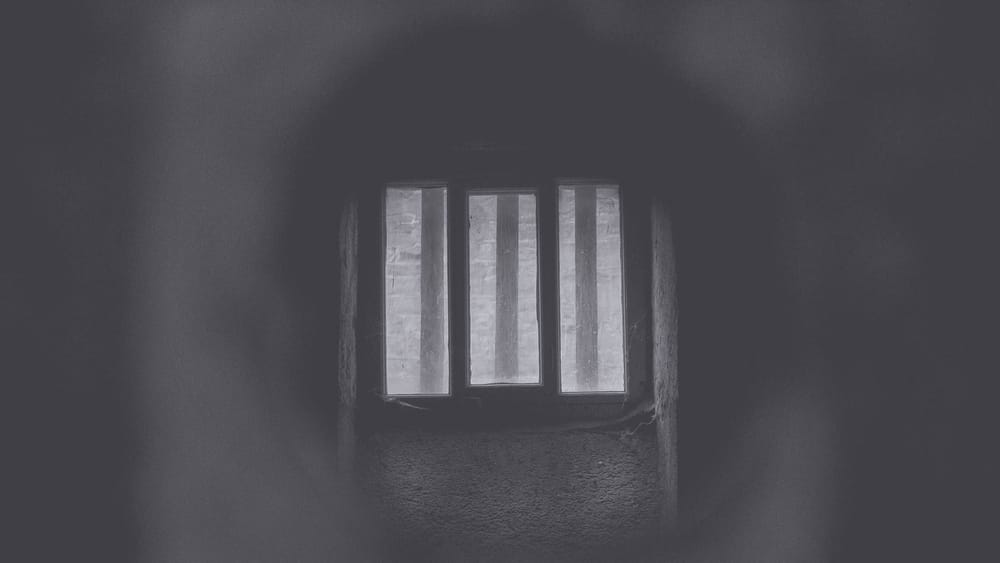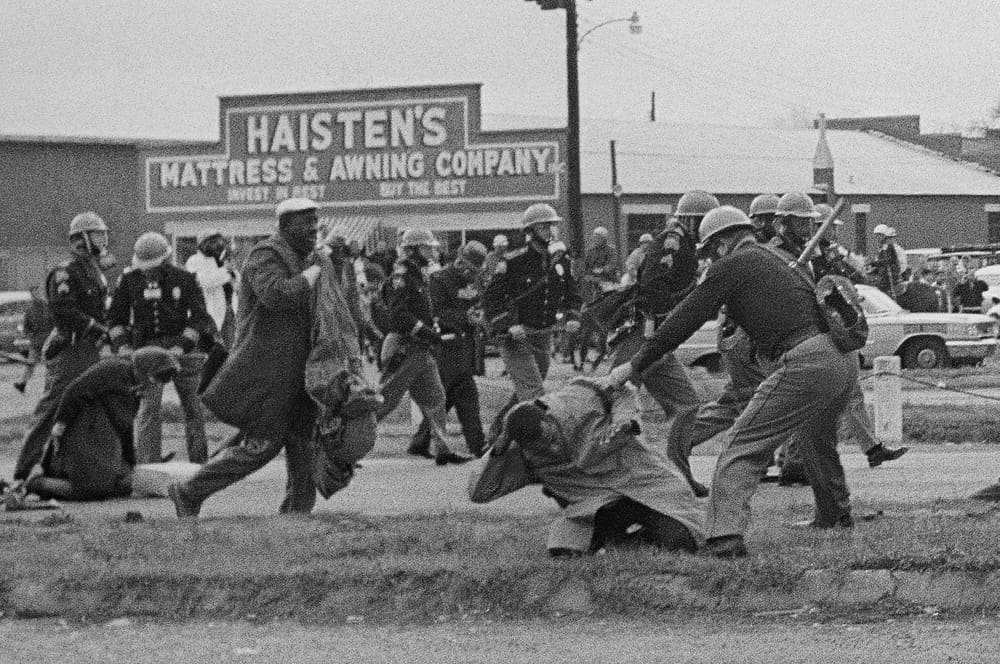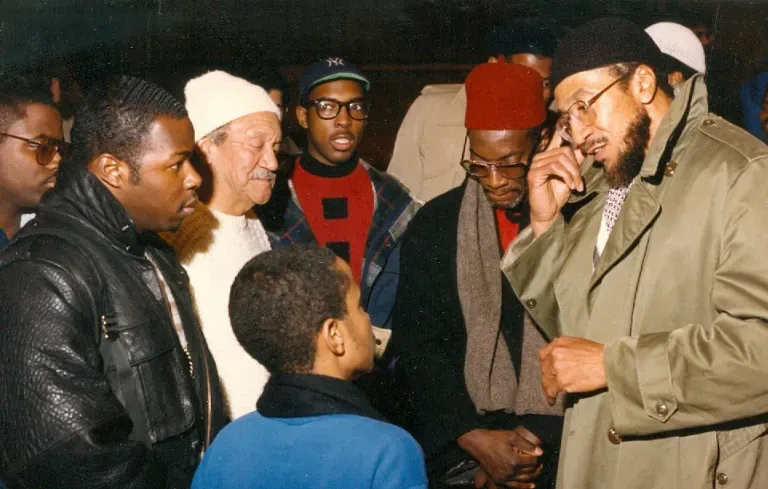Sharing stories about their lives and experiences in political organizing, narrators contribute to a collective memory, highlighting the similarities and differences in the landscape today and how they have remained committed to movement work over decades.
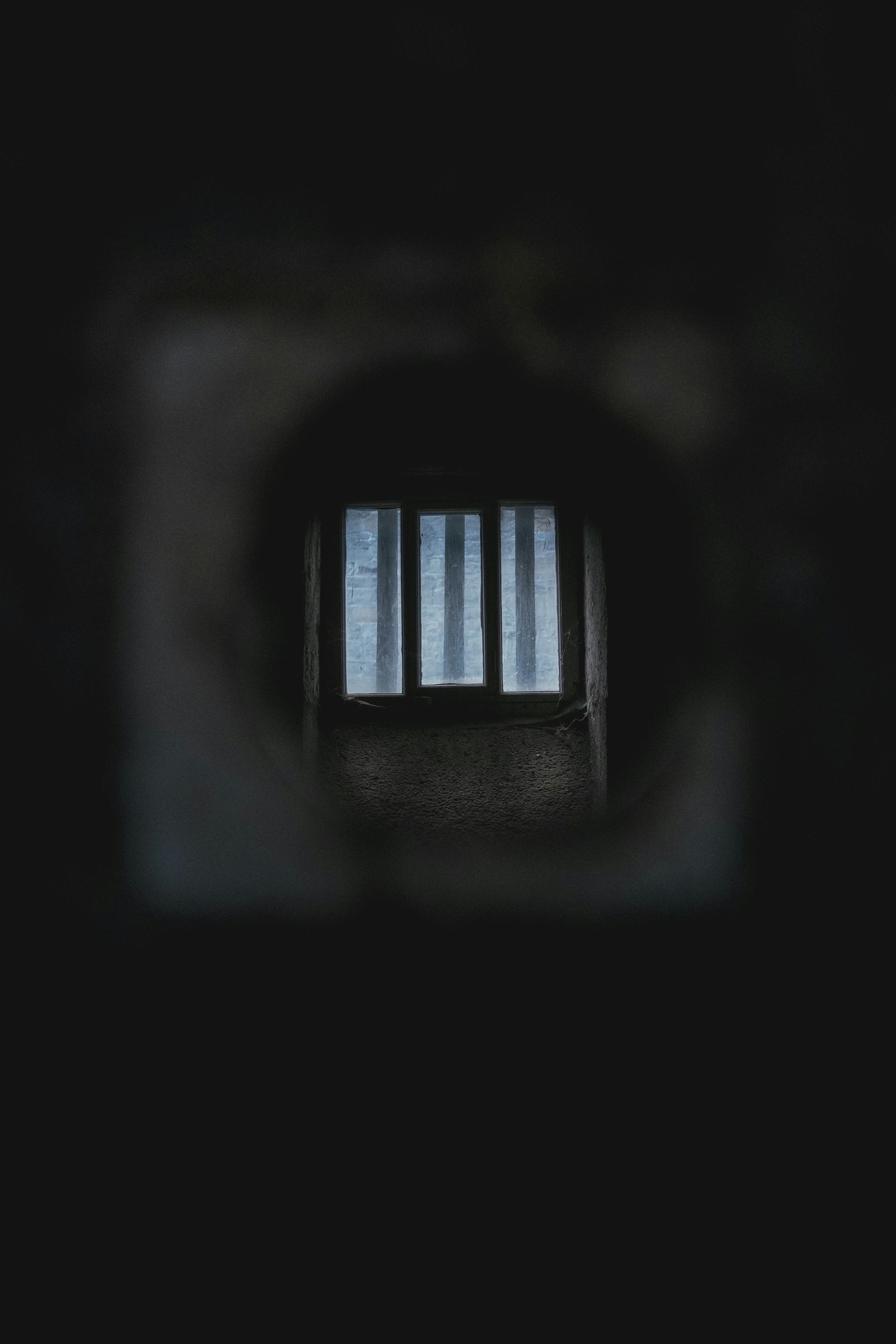
This is a preview of Jihad Adbulmumit's 3-hour oral history conducted by oral historian Dartricia Rollins. It was recorded on June 25, 2025 at the Love, Land, and Liberation Farm in Lithia Springs, GA as part of an oral history collection with veteran members of the Black Panther Party and Black Liberation Army. This excerpt has been edited for clarity.
Born in Somers Point, NJ in 1954 and raised in Plainfield, NJ, Jihad Abdulmumit is a veteran member of the Black Panther Party (BPP) and the Black Liberation Army (BLA) who shares his first-hand accounts of revolutionary struggle. Joining the BPP at 16, Jihad's oral history covers a wide-range of experiences. From above-ground activism and organizing youth in schools and extra-curricular groups to underground activities like bank robberies and police shootouts, Abdulmumit's message is one of commitment to liberation and embracing art to ignite revolutionary ideas.
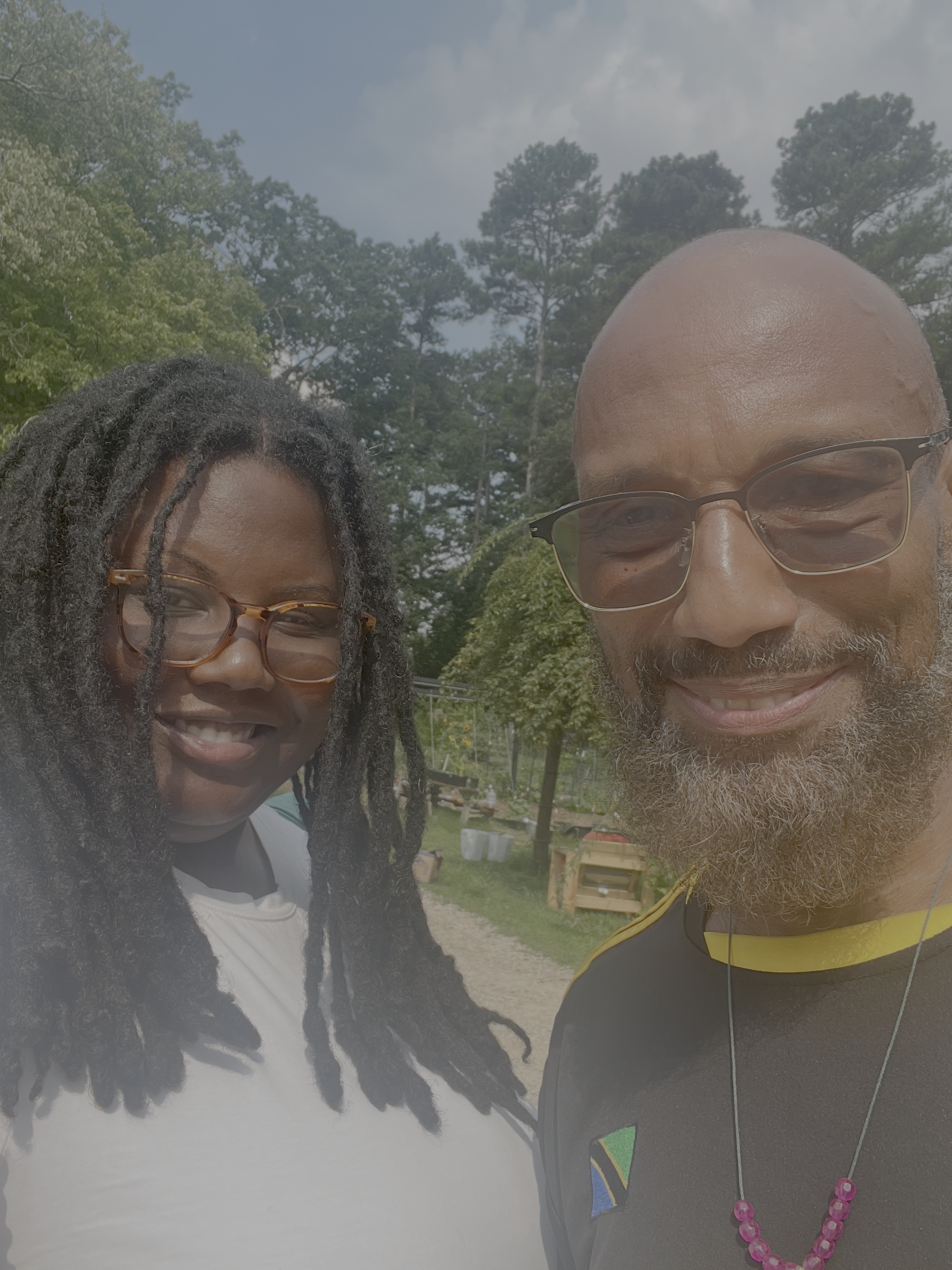
Dartricia Rollins: Okay, we're recording again. So I want to start us at your being captured and becoming a political prisoner and prisoner of war in '76. So where were you incarcerated? And can you tell me about that time?
Jihad Abdulmumit: Yes, *arabic prayer* so continuing, I was incarcerated. Well, I got arrested several times. The first one, as I mentioned, where people were clapping, that was in Rochester, New York, and I got out on bail because the community actually didn't think that I did that. I was such a good community worker, and we had stocking masks on and stuff like that. And nobody believed that. So the whole community put up houses, like, right quick to get me out of jail. And then I continued *whispers* robbing banks. Anyway. They were like, what?! They didn't really believe it was me.
So... But when I finally so, I was in Rochester, Monroe County. Monroe County jail was just a county jail in Rochester, NY. Got out of that jail, and resume whatever kind of mixed the in Rochester, New York, as part of an organization. I helped start this organization. First started off with the Monroe County Community Organizers that was on Jeff for those of us up in... Jalil would know. If anybody from Roch... Jefferson Avenue they had a club called the People's Club. Well, it was slammin' man, had the longest bar in Monroe County. I mean, a long bar, it's a nightclub.
So when I went up to New York, I worked there and started a youth organization over there. That organization was called Monroe County Community Organizes Youth Federation, and I worked there, and then they opened. There's a lot of contradictions in this, as far as the benefit to the community, but anyway, because we also started a liquor store, so much for the benefit of the community. But there you go. That's controversial within itself, but there you go. And so I did that, and with this youth organization, we separated from that and became the Rochester Federation of Youth. All the time now, by this time, I am kind of like underground in the BLA (Black Liberation Army). But nobody, like I said, nobody knows that. I went up there under the alias of Randy Johnson. They don't even know my birth name was David Bryant, B-R-Y, David Bryant, B-R-Y-A-N-T. I became a Muslim in prison. That's when my name became Jihad Daud Abdulmumit. I changed my name legally.
So, I have so many different names. Reggie McMoss, you know, it's just, just the underground thing. Just changed the name. So I went up there, Randy Johnson, and there's a very good two and a half years of my life working in the community, with brothers and sisters in the community. But even my son's mother, Kimu--Kimu Harris, mother, Teresa Harris, a very beautiful sister, you know, didn't even know my real name. I remember one time I came back from Plainfield, NJ. We was driving to our house, and I seen all these cars parked the front. She was just talking. I'm looking, pulled in the driveway, and the FBI jumped out behind us. She doesn't know who I am, for real at that time, she knows now, but and they said, David Bryant, don't move. She was sitting there saying, David... chuckles David Bryant?
JA: And so they asked me about the kidnapping of Patricia Hearst, Patty Hearst, if anybody remembers that. I guess they was asking everybody about who kidnapped Patty Hearst, you know, it was Donald DeFreeze in the Symbionese Liberation Army. But at that time, it probably really wasn't known, I guess. And they asked me about some homicides in the community, none of which I knew about, and I didn't know anything about Patty Hearst inside deal. Every...just what people knew on the news, but nevertheless, they jammed me up for that. Asked me a bunch of questions, freaked out my son's mother, Teresa and so.
But anyway, but my experience, she was, became a very strong member and founding member of the Rochester Federation of Youth. Very strong, balanced sister to this day, and I still communicate with her, wonderful, wonderful sister. And so, yeah, that was my experience. And so we had a very large youth organization. We had uniforms, we had a fresh produce route. We had trucks, you know, selling produce, like the ice cream truck in the community. We had a stall in the farmers market. We had our own community newspaper. And the contradiction between above-ground–underground, I have to criticize myself. Strategically for the record, whoever would even learn from it about mixing the two.
So here I am underground, and I'm functioning above-ground, and I continue functioning underground. So when I continue to expropriate money from banks and when I get busted, it brought the whole organization down.
Not only with me. It was Eric Davis, like I said, Stitch, Eric Stitch. L. Davis, Elijah Abrams, and myself, when we get popped--busted and Lorraine [LAST NAME] we're members of the above ground organization, you arrest four of us at one time in a big shootout, and it brought the whole organization down. They comfiscated the vehicles. And you see, that's a lesson. Historical lesson. It's 1976 so, but you know, screw me. That was, I was so smart, like my son's mom said,
"You so smart, you stupid." *laughter* That's what she used to tell me. *unclear* She got away with saying a lot of stuff that nobody said. Anyway, you're so smart, you're stupid, man.
But anyway, that's that was a criticism for myself, and it was like part of the feud between Huey Newton and Eldridge Cleaver, also. I don't want to get into the details about that, but if you ever investigate above ground, underground we're fighting above ground. So that really wasn't established, and we weren't sophisticated and organized enough to have worked that out. We were really pioneering in so many fronts at that time with the Black Panther Party and, you know, and then the need to fight back against police brutality and virulent right white supremacy and racism, the need to be able to confront paramilitary, the drug deals in our community, the need to protect ourselves in our community.
And unlike now today, where more and more formations are becoming legalized, which I applaud that, by the way, the ones that's really on the progressive side to protect our communities, those that are legally able to have a weapon to be able to do that, but we, none of us, were [able to] legally have a weapon. Now, not only that the weapons we're using [are] to be robbing banks. But anyway, they when they busted us, it brought down the Rochester Federation of Youth. It was an All Star community organization. Was into the high schools with juvenile delinquency. To use that word, there's a better word, of course. People being kicked out of school, you have to consult us first. School violence. We're selling. We were doing so much in the Rochester community. We were out there drill teams and everything, and it collapsed when myself and three other main comrades got arrested for bank robbery that nobody knew we were doing because we're underground, above ground, underground. Make up your damn mind. But look what happened.
So I have to that's, that's, and that's a whole nother lesson to speak about for those that's in that level of stuff, mixing the two. Well, we mixed it, and so did a lot of other people mix it too. Because everybody that got jammed up probably was above ground in the Panther Party too. All the Panthers that got jammed. Everybody wasn't... I mean, so it's just that whole and then it was the whole question, when you transition from above ground to underground, you still got the legacy of being above ground, that stuff doesn't just disappear. And so, okay, I'm not above ground anymore. I'm underground. But yeah, when you got busted underground, all you got to do is do a Boy Scout investigation and figure that you was above ground, and whatever you was doing above ground is going to be the subject to be what it brought down by your arrest. You understand, not a brilliant idea, but I'm proud of that legacy, because we were figuring it out with courage and strength, you know, and being Vanguards in what we do.
The Panther Party, what, it starts in 1966 October, and we were by the demise was probably right around that time. It only lasted--the hoorah was only about 10 years just at the most, before the brinks of the last showdown, you know. But it would be indelibly imprinted in the US history, in the history of the world, the Black Panther Party, I would say that. And I'm very proud to have been part of that, with all our mistakes and lessons to be learned. But, man, mixing the two was not a good idea, as I can figure it out, but we couldn't figure it out.
We had, we felt the urgency. We needed the money! We trying to move underground. Who's going to do that? How do you even recruit somebody strictly for the underground? We had no mechanism for that.
So it got to be the trusted comrades that you know from working together with above ground that's going to do this trusted work underground. So that's…who you gon meet? Somebody new? You're going to vet them out. You got a job or something, you gonna do an interview, you know. So it's the same comrades there's just like we are now multitasking, Dartricia in this organization, Community Movement Builders. You know, you're in Jericho. I'm in Jericho. I'm in the Spirit of Mandela. I'm in the Community Movement Builders too now.
But imagine if now, take that same example of being in multitasking this organization. Imagine you've being here and now you're also underground because you got some serious work to be done. So what’ll you do, find somebody else that's just strictly underground? Where did you meet this other person that you can trust? You build the trusting relations above ground. That's how you get to know a joker. How are you gonna know somebody else…was it gonna be your friend, and also now they're gonna start doing this heavy duty underground work with you. So we really haven't got those processes, in my humble opinion, down packed and it costed us dearly. It brought the whole organization down in the Rochester Federation of Youth. My gosh, this was a powerful organization. We had about 40 people–in uniform, drill teams, PE classes, movie nights, marching through the community. I was really strong and unified. But anyway, there you go.
Jihad Abdulmumit (he/him) is the Chairperson of the National Jericho Movement, which supports political prisoners in the United States and campaigns to win their freedom. He is a community activist, motivational speaker, playwright, and retired health care provider. Jihad was a domestic political prisoner and prisoner of war and served 23 years of his life in prison for his involvement in the Black Liberation Movement. He joined the Black Panther Party at sixteen and eventually went underground in the Black Liberation Army.
Abdulmumit also sits on the Coordinating Committee of the Spirit of Mandela Coalition and is one of the key organizers of the 2021 International Tribunal held at the Malcolm X & Dr. Betty Shabazz Memorial and Educational Center in New York which charged the United States government with the genocide of Black, Brown, and Indigenous people. An international panel of nine jurists found the US guilty of genocide in violation of the 1948 United Nations Convention on the Prevention and Punishment of the Crime of Genocide. Finally, Jihad is a member of the Muslim community, the Jama’at of the Sheu Uthman dan Fodio of West Africa, and he lives in Atlanta, Georgia.
